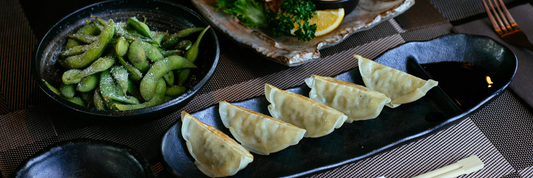Best oil for wooden spoons is a crucial consideration for anyone looking to maintain their wooden kitchen utensils. Oiling your wooden spoons is not just about aesthetics; it plays a significant role in preserving their functionality and extending their lifespan. Here’s why regular oiling is essential and the best oils to use for treating your wooden spoons.
- Cutting Board Oils: Top Picks and Oils to Avoid
- How to Oil a Cutting Board: Step-by-Step Guide for Long-Lasting Durability
- Guide to Choose the Best Oil to Fry Fish
Why Oiling Wooden Spoons Is Crucial for Longevity

Oiling your wooden spoons is not just a matter of aesthetics; it plays a significant role in maintaining their functionality and longevity. Here are several reasons why regular oiling is crucial:
- Prevents cracking, drying, and warping: When wooden utensils are left dry, they are prone to cracking and warping, which can render them unusable. Oiling helps to keep the wood supple and hydrated, minimizing the risk of damage.
- Maintains a smooth, non-porous surface to reduce bacterial buildup: A well-oiled spoon has a smoother surface that is less likely to harbor bacteria. Unlike dry, porous wood, oiled wood is easier to clean and maintain, ensuring it remains safe for food preparation.
- Extends the lifespan of utensils, reducing replacement costs: Investing time in oiling your wooden spoons can save you money in the long run by extending their lifespan. Instead of frequently replacing utensils due to wear and tear, proper care can keep them functional for years.
Top Food-Safe Oils for Treating Wooden Spoons

When it comes to oiling wooden spoons, choosing the right oil is essential for effective treatment. Here are some of the best food-safe options:
Mineral Oil for Wooden Spoons – The Industry Standard
Mineral oil stands out as the industry standard for treating wooden spoons, and for good reasons:
- Odorless, tasteless, and non-toxic: Mineral oil does not impart any flavor or smell to the wood, making it an ideal choice for kitchen use. It won’t interfere with the taste of your food, ensuring that your culinary creations shine.
- Doesn’t go rancid, making it ideal for busy restaurant kitchens: Unlike some natural oils, mineral oil remains stable over time and does not spoil. This characteristic makes it suitable not just for home cooks but also for professionals in busy kitchens.
- Readily available and cost-effective: Mineral oil is easy to find at grocery stores or pharmacies, and it’s generally affordable, making it accessible for everyone.
Walnut Oil for Wooden Spoons – A Natural, Hardening Option
For those who prefer natural options, walnut oil offers a unique solution:
- Penetrates deeply and polymerizes, leaving a protective finish: Walnut oil has the ability to seep into the wood, creating a hardened layer that offers excellent protection against moisture and wear.
- Use only raw, cold-pressed walnut oil to avoid spoilage: It's crucial to select raw, cold-pressed walnut oil to ensure that the oil remains fresh and doesn’t turn rancid. This type of oil will provide the best results in terms of protection.
- Ideal for those seeking plant-based alternatives: Walnut oil is a great option for those looking for a plant-based treatment. It is safe and effective, appealing to individuals who prefer to avoid petroleum-derived products.
Coconut Oil for Wooden Spoons – Safe but Use with Caution
Coconut oil has gained popularity for various culinary uses, including the treatment of wooden tools:
- Offers mild antimicrobial properties: It contains natural compounds that can help reduce bacteria on surface areas. This feature can add a layer of safety when using your wooden spoons with food.
- May go rancid over time if not properly refined: One of the downsides is that coconut oil can spoil, especially if not refined. Therefore, it’s important to use it with caution and monitor the condition of your spoons regularly.
- Suitable for home kitchens, less ideal for commercial use unless fractionated: While coconut oil can work well in a home setting, it may not be the best choice in a professional kitchen due to its stability concerns, unless fractionated for better longevity.
Beeswax Blends – Enhanced Water Resistance
For those looking for something with enhanced protection, beeswax blends can be a great choice:
- Combined with oils for long-lasting protection: Beeswax can be mixed with other oils to create a robust barrier that offers added moisture resistance. This combination can significantly enhance the durability of wooden utensils.
- Creates a semi-gloss finish that helps repel moisture: Not only does it protect the wood, but it also provides a nice finish that enhances the appearance of your wooden spoons. The moisture-repelling nature of beeswax is particularly beneficial for items that are frequently exposed to water.
How Often Should You Oil Wooden Spoons?

Maintaining wooden spoons is essential for their longevity and functionality. Over time, oils from food, moisture, and heat can damage the wood, leading to dullness and rough textures.
Signs Your Wooden Spoons Need Oiling
- Dryness: If your spoons feel dry or rough to the touch, they likely need a refreshing coat of oil.
- Dull Color: A noticeable change in color from rich to pale indicates that the wood is thirsty for oil.
- Rough Texture: If your spoons no longer feel smooth against your skin, it’s a clear sign they require attention.
Recommended Schedule for Restaurants vs. Home Use
For restaurants, where wooden utensils are used daily, a weekly oiling routine is often appropriate. In contrast, for home use, once a month is generally sufficient, depending on usage frequency.
Seasonal Considerations in Humid vs. Dry Climates
In humid environments, wooden spoons may retain moisture better; however, it’s still vital to oil them regularly. In dry climates, the risk of the wood cracking increases, making more frequent oiling necessary to maintain moisture levels.
Step-by-Step: How to Oil Wooden Spoons Correctly

Cleaning Before Oiling
Before applying any oil, it’s crucial to clean your spoons properly:
- Hand Wash and Let Dry Completely: Clean your spoons with warm soapy water and avoid the dishwasher, as heat can damage wood. Allow them to air dry completely to prevent trapping moisture.
- Never Soak in Water Before Applying Oil: Soaking can cause the wood to swell, which is detrimental to its natural fibers.
Applying the Oil
Once your spoons are clean and dry, it’s time for oiling:
- Use a Soft Cloth or Brush to Coat the Entire Surface: Choose food-safe mineral oil, walnut oil, or coconut oil. Apply evenly, ensuring all surfaces are covered.
- Let the Oil Soak in Overnight: This duration allows the oil to penetrate deeply into the wood, nourishing it thoroughly.
Buffing and Storage
After the oil has soaked in, it's important to finish the process correctly:
- Wipe off Excess Oil and Buff with a Clean Cloth: Removing any excess helps avoid a sticky residue and gives the wood a nice sheen.
- Store in a Dry, Ventilated Place: Proper storage helps maintain the effectiveness of the oil and the wood.
Where to Buy Wooden Spoons and Oil Treatments in Canada

For high-quality wooden spoons and effective oil treatments, visit kimecopak.ca.
- Browse Premium Wooden Spoons: KimecoPak offers a variety of exquisite wooden spoons that cater to every chef's needs.
- Bundle Deals: Consider purchasing wooden utensils with care kits to ensure your tools remain in top condition.
- Trusted by Restaurants, Eco-Friendly and Food-Safe: KimecoPak is recognized for providing safe, sustainable products that professional kitchens depend upon.
Conclusion
Choosing the best oil for wooden spoons is not just about maintaining your tools; it significantly improves hygiene and extends usability in both home and professional kitchens. Whether you opt for mineral oil, walnut oil, or coconut oil, proper care is crucial for the longevity of your wooden utensils.




